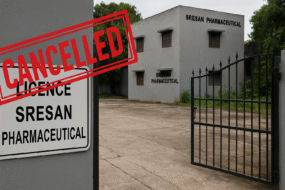In a tragic turn of events, Dr. Gradlin Roy, a 39-year-old cardiac surgeon from Chennai, collapsed during ward rounds and succumbed to a massive cardiac arrest caused by a complete artery blockage. Despite immediate efforts from his colleagues—CPR, emergency stenting, an intra-aortic balloon pump, and even ECMO—nothing could save him. The irony of a heart surgeon losing his life to the very disease he treated has shaken the medical fraternity and reignited debate over the hidden health risks faced by doctors.
A Growing Pattern of Tragedies
According to Dr. Sudhir Kumar, a Hyderabad-based neurologist trained at CMC Vellore, Dr. Roy’s death is not an isolated incident. In recent years, several Indian doctors in their 30s and 40s have died of sudden heart attacks. The underlying cause, he argues, is the relentless lifestyle of doctors—long, erratic working hours, chronic stress, poor diet, lack of exercise, and neglected health check-ups.
The pressures of life-or-death decisions, medico-legal fears, and burnout push many physicians into a cycle of exhaustion. Some turn to caffeine, fast food, or unhealthy coping mechanisms, further compounding the risks. Emotional strain, anxiety, and depression—often ignored—only deepen the crisis.
What Experts Recommend
Dr. Kumar emphasized that doctors must begin treating their own health as seriously as their patients’:
- Routine screenings for blood pressure, cholesterol, and diabetes.
- Prioritising sleep, aiming for at least 7 hours regularly.
- Daily exercise, even 30 minutes of brisk walking or cycling.
- Balanced meals and stress management practices such as yoga, meditation, or peer support.
- Most importantly, learning to say no to non-urgent tasks or surgeries when personal health is at risk.
KMC doctor Aditi Sharma echoed these concerns, highlighting exploitative work schedules where doctors often work 36–48 hours without rest, urging systemic reforms to enforce healthier working conditions.
Other Recent Cases
Dr. Roy’s death follows that of Dr. Gaurav Gandhi, a renowned Gujarat-based cardiologist who died of a heart attack at just 41 in 2023 after performing over 16,000 heart surgeries. His sudden demise added weight to the argument that medical professionals are paying the price of extreme workloads.
The Global Picture
According to a WHO–ILO study, overwork contributed to 745,000 deaths in 2016 alone, a sharp rise since 2000. Working more than 55 hours per week increases the risk of stroke by 35% and heart disease by 17%, with men in South-East Asia and the Western Pacific the most affected.
A Call for Change
The loss of Dr. Roy has sparked grief and reflection across India’s medical community. Surgeons and specialists have spoken out, describing such deaths as the cumulative result of “years of insults to the body” from punishing schedules. Many argue that hospitals must enforce reasonable shift limits, mandatory breaks, and support systems that safeguard doctors’ well-being.
The collective message is clear: if those who save lives are not protected, the entire healthcare system is at risk.





